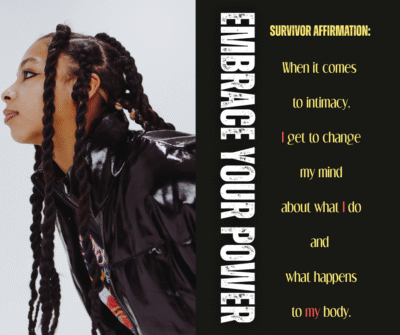When an actor or entertainer says they do not want to engage in certain kinds of scenes—intimate, violent, or otherwise—that boundary deserves respect
 When an actor or entertainer says they do not want to engage in certain kinds of scenes—intimate, violent, or otherwise—that boundary deserves respect. Man or woman. Period.
When an actor or entertainer says they do not want to engage in certain kinds of scenes—intimate, violent, or otherwise—that boundary deserves respect. Man or woman. Period.
Too often, instead of respecting that “no,” the public digs up an old scene from 30 or 40 years ago: “You did it then, why not now?” And suddenly the performer is mocked, labeled, and shamed—as though their boundaries are not valid unless they remain exactly the same forever.
That is not curiosity. That is coercion.
That is not accountability. That is badgering.
Consent is not a one-time contract signed decades ago. It is living. It evolves with time, age, values, faith, health, and life experience. To pressure someone by weaponizing their past work is to treat them as a product, not a person.
When interviewers and social media voices pile on—framing boundaries as “hate” or “hypocrisy”—we create a culture that punishes autonomy. And in doing so, we send a chilling message to others: your “no” will not be respected either.
We need to pause and ask ourselves:
- Are we using curiosity to illuminate—or to corner?
- Are we respecting growth, or trying to freeze people in the roles they once played?
- Do we want a world where entertainers feel safe telling the truth—or one where they are bullied into silence?
Coercion
Coercion happens when someone pressures another into doing something against their will by using threats, manipulation, or undue force—social, emotional, or otherwise.
In this case, people are pulling up a scene from decades ago to imply: “You did it then, so you must do it now.”
That’s coercive logic. It disregards an individual’s current boundaries, growth, or personal values and attempts to override their consent by appealing to past actions.
Badgering
Badgering is relentless pestering, prodding, or trying to wear someone down.
Mocking the actor online, labeling their boundaries as “hate,” or piling on with constant commentary is a form of badgering.
It’s designed to shame or exhaust them into compliance—or silence.
Why It’s Harmful
Consent is not permanent. Doing something decades ago does not obligate anyone to do it again.
Boundaries evolve. People change their comfort levels, beliefs, and needs with time.
Weaponized memory. Digging up old work to discredit present autonomy treats the actor like a product, not a person.
Mislabeling boundaries. Calling someone’s refusal “hate” is manipulative—it frames self-protection as aggression, which discourages others from setting their own boundaries.
Entertainers are human beings. Their right to say “not anymore” is sacred. Let’s make sure our interviews, our commentary, and our consumption reflect that truth.
👉 Respecting boundaries isn’t weakness. It’s the foundation of real humanity.
Affirmation: When it comes to intimacy, I get to change my mind about what I do and what happens to my damn body.